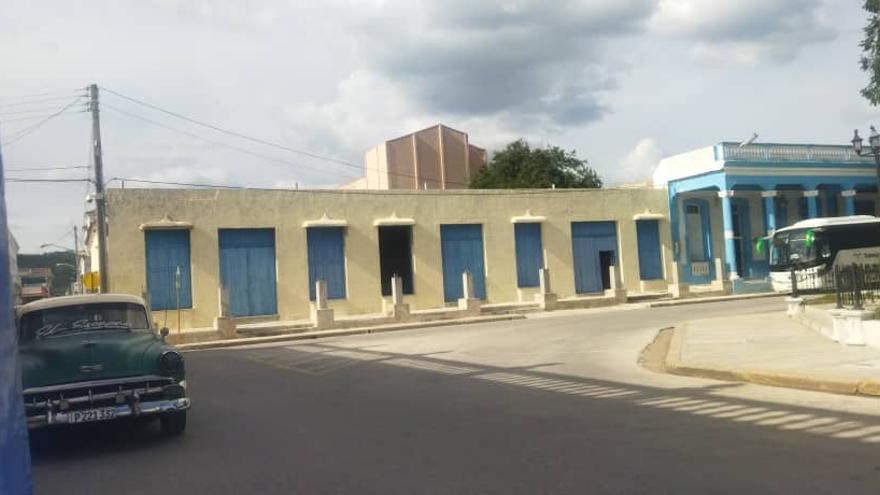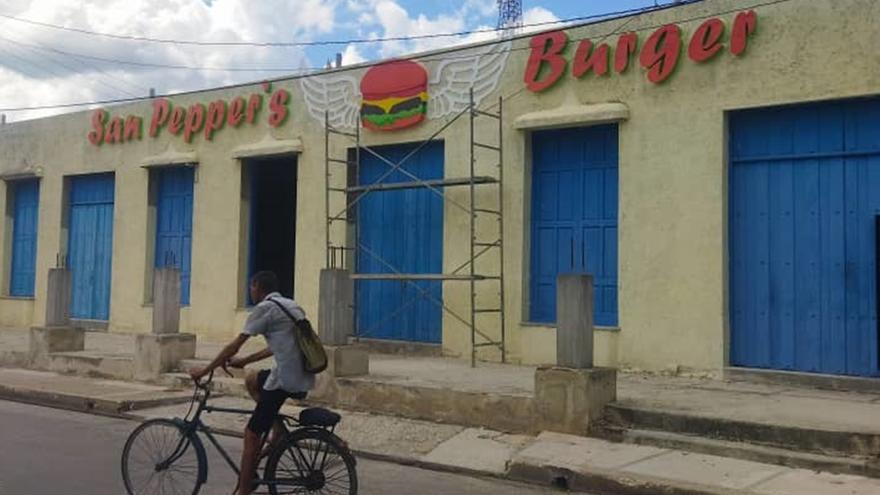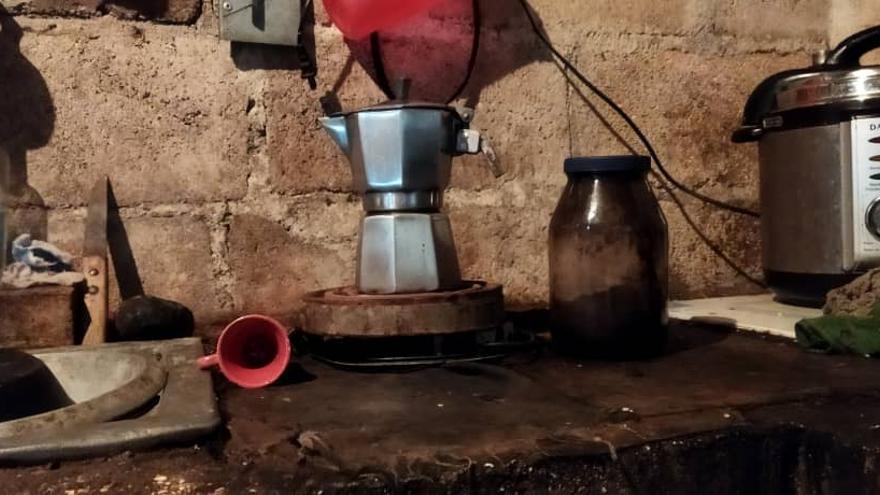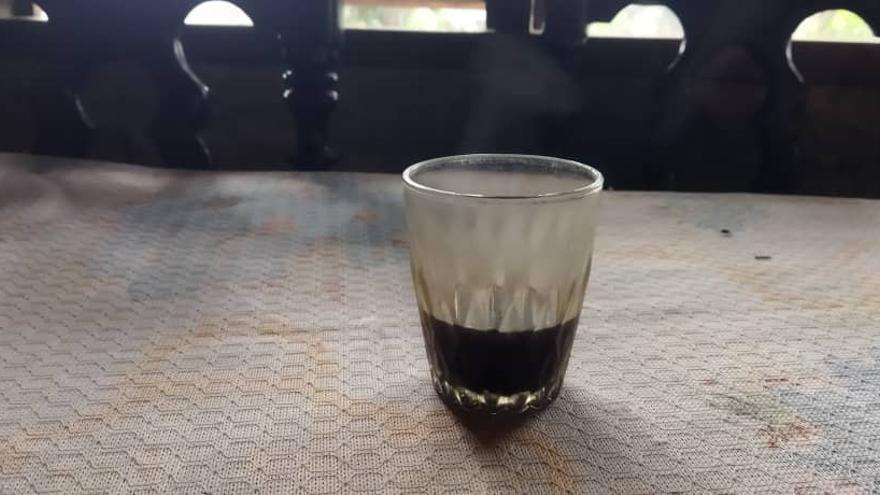
![]() 14ymedio, Miguel García, Holguín, October 18, 2023 — A motorcycle zips by as a horse-drawn carriage makes its way on the other side of road. The sunlight glistens off the asphalt which is, quite surprinsingly, flawless, without a pothole or a crack. The owner of the nearby privately owned company, Super Rapido CG, invested in repairs to the street in front of his business so that it would not pose a danger to motorists. The money to restore more than a kilometer of roadway in the San Rafael section of Holguín came out of his own pocket.
14ymedio, Miguel García, Holguín, October 18, 2023 — A motorcycle zips by as a horse-drawn carriage makes its way on the other side of road. The sunlight glistens off the asphalt which is, quite surprinsingly, flawless, without a pothole or a crack. The owner of the nearby privately owned company, Super Rapido CG, invested in repairs to the street in front of his business so that it would not pose a danger to motorists. The money to restore more than a kilometer of roadway in the San Rafael section of Holguín came out of his own pocket.
“The man has revived the neighborhood,” says Georgina, a 76-year-old housewife who for decades watched the area around her deteriorate. Now hopeful, she closely follows the efforts of Amauris Gonzalez Parra, owner of the Super Rapido CG, who is changing the face of the neighborhood. “Not only did he fix the road here but several new businesses have opened thanks to this. The place is always full of customers.”
She points to a wide patio covered with a blue tarp where Gonzalez Parra, his two children and his employees wait on customers coming to pick up the shipments that relatives overseas have bought for them on the company website. On Monday, the place was bustling as workers behind the counter hurriedly fetched merchandise. continue reading
On Monday, the place was bustling as workers behind the counter hurriedly fetched merchandise
“Every month my brother buys me a supply of food, soap, cooking oil and detergent. It’s convenient for me come here to come here to pick it so we don’t need home delivery,” says 30-year-old Luis Angel, one of the dozens of people in the store at noon. Three coolers display soft drinks, beers and juices of different types and sizes.
“Amauris has helped his congregation a lot. He’s a Jehovah’s Witness and this is close to Kingdom Hall, the temple his family attends, says Luis Angel. “He has a very big heart. If a ’brother of faith’ gets sick, he provides food and other types of support. He has also given jobs to many of them.”
Although official resentment of Jehovah’s Witnesses has decreased significantly in recent years, it is still difficult for them to find work in strategically important sectors such as tourism. The prejudices that led to decades-long workplace discrimination have not been completely erased, which is why Gonzalez Parra’s gesture is so greatly appreciated by his community.
Luis Angel points out the the residents of San Rafael still find it odd that a private citizen had to pay to fix the road. It leads to two facilities — a slaughterhouse and an egg warehouse — belonging to Holguín Poultry Company. It also leads to Frutas Selectas, a division of the Silo Company, as well as to the main provincial warehouse of the all-powerful Cimex corporation, a business conglomerate run by the Cuban military.
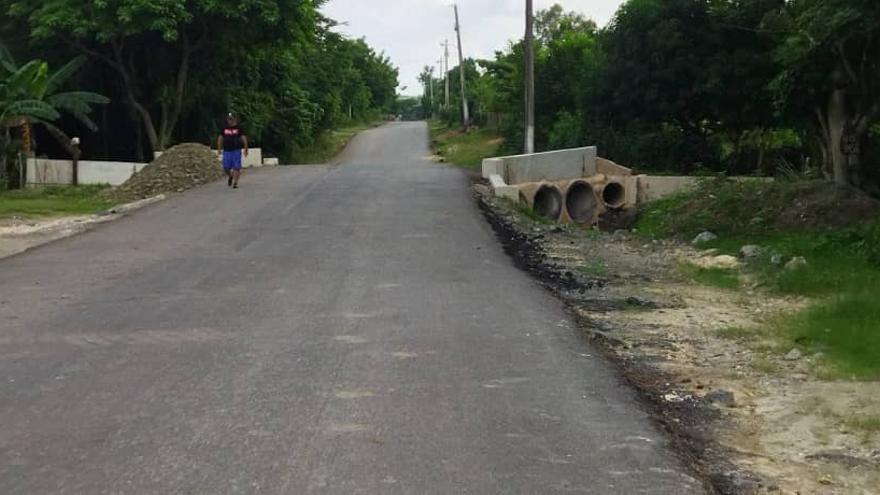
“The highway was torn to pieces during all that time but none of those state companies lifted a finger or donated any resources so that delivery trucks didn’t have to constantly dodge potholes,” says Luis Angel. “With all the money they make, they didn’t invest a single peso to prevent accidents or improve the safety of their employees going to and from work. This businessman did in a few months what the state failed to do for years.”
To repair the road, Gozalez Parra hired a state-owned firm, Engineering Construction Company No. 17, from Holguín. Although the terms of the contract were not made public, many in San Rafael claim he paid seven million pesos for the repair work. They also claim he insisted on being onsite to insure the work was being done properly and with the required amount of asphalt.
In October of 2022, 50-year-old Octavio Almaguer Ricardo lost his life along the same stretch of highway when the motorcyle he was riding hit a pothole, throwing him off the vehicle. He suffered severe head trauma and multiple fractures in one leg.
“Holguín and Cuba are full of potholes like this, some even worse than this. What is the point of the license plate tax, the tax we pay to use the roads in Cuba? How many more lives will be lost due to the poor condition of Cuban roads?” asks an outraged cousin of the deceased on social media.
That bleak scenario has changed. Not only has the roadway in front of Super Rapido CG been repaired but stalls selling prepared food have popped up. Drivers also prowl the street looking for customers who want to be ferried with their purchases to a nearby town. And there is no shortage of vendors selling everything from freshly brewed coffee to cold beer.
The Super Rapido CG website points out that the company’s online operation is based in Hialeah, Florida. It provides both U.S and Cuban telephone numbers which customers can call if they any questions. Business at the Holguín location has been growing so rapidly that Gonzalez Parra decided to buy the house next door in order to expand.
A bit over a hundred yards away, the family has a farm at which it is installing walk-in coolers to store merchandise. They will also be opening an ice cream parlor on their property as well as a store with a bakery and sweet shop. Customers will be able to move effortlessly between the current property and the new operations as “if they were in another country because this road is like glass,” jokes a neighbor.
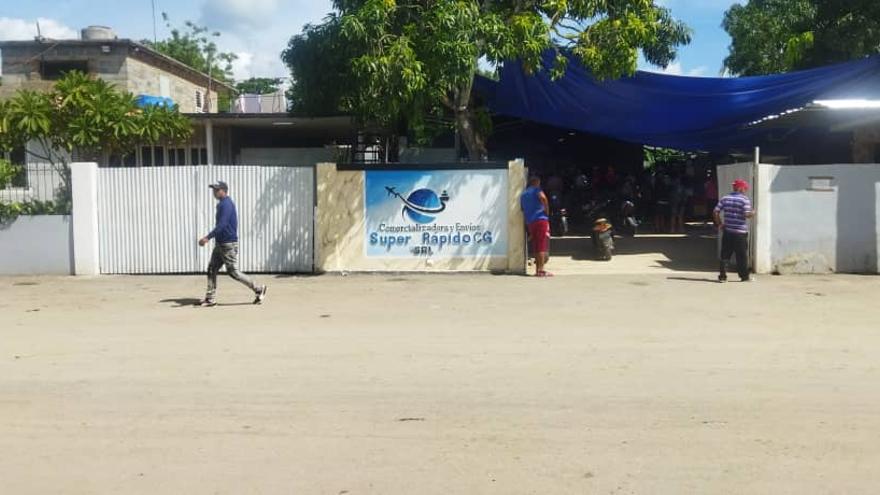
Local residents can also buy directly from the store. One woman with a small child in her arms is trying to decide whether or not to get some bars of soap. “The prices are high,” she says,” but no other privately owned store in Holguín is as well-stocked or has such a wide variety. Several containers of merchandise get delivered here every week so you can buy with confidence. It never fails.”
Using three vehicles from a fleet of two late-model Peugeots and three electric tricycles, the company delivers purchases by Cuban emigrés to their families in Holguín. Super Rapido also carries footwear, clothing, household goods and home appliances. A WhatsApp group keeps customers up to date on the latest offerings and announces special combos and sales.
Even state-run media has been enthsiastic about the privately owned company. In September, local televesion broadcaster Telecristal praised Super Rapido, describing it as “today’s undisputed leader in the import of essential products in the eastern part of the country.”
The broadcaster detailed the contents of various shipments delivered to the store in late August: “assorted chicken parts, ground meat, detergent, cooking oil, jam and other products.” The report described the entrepreneur’s work as “effective business management with nations such as the United States, Panama, Spain and Poland as well as with companies from other countries with whom he maintains commercial ties.”
Telecristal also commended the fact that the privately owned business counted among its clients state-owed companies such as nickel industry subsidiaries, hotel chains, retail and food-service establishments, and even the Cimex corporation, the same conglomerate that for years did not spend one centavo to repair the San Rafael highway, the one that now seamlessly runs past Gonzalez Parra’s operation.
____________
COLLABORATE WITH OUR WORK: The 14ymedio team is committed to practicing serious journalism that reflects Cuba’s reality in all its depth. Thank you for joining us on this long journey. We invite you to continue supporting us by becoming a member of 14ymedio now. Together we can continue transforming journalism in Cuba.

